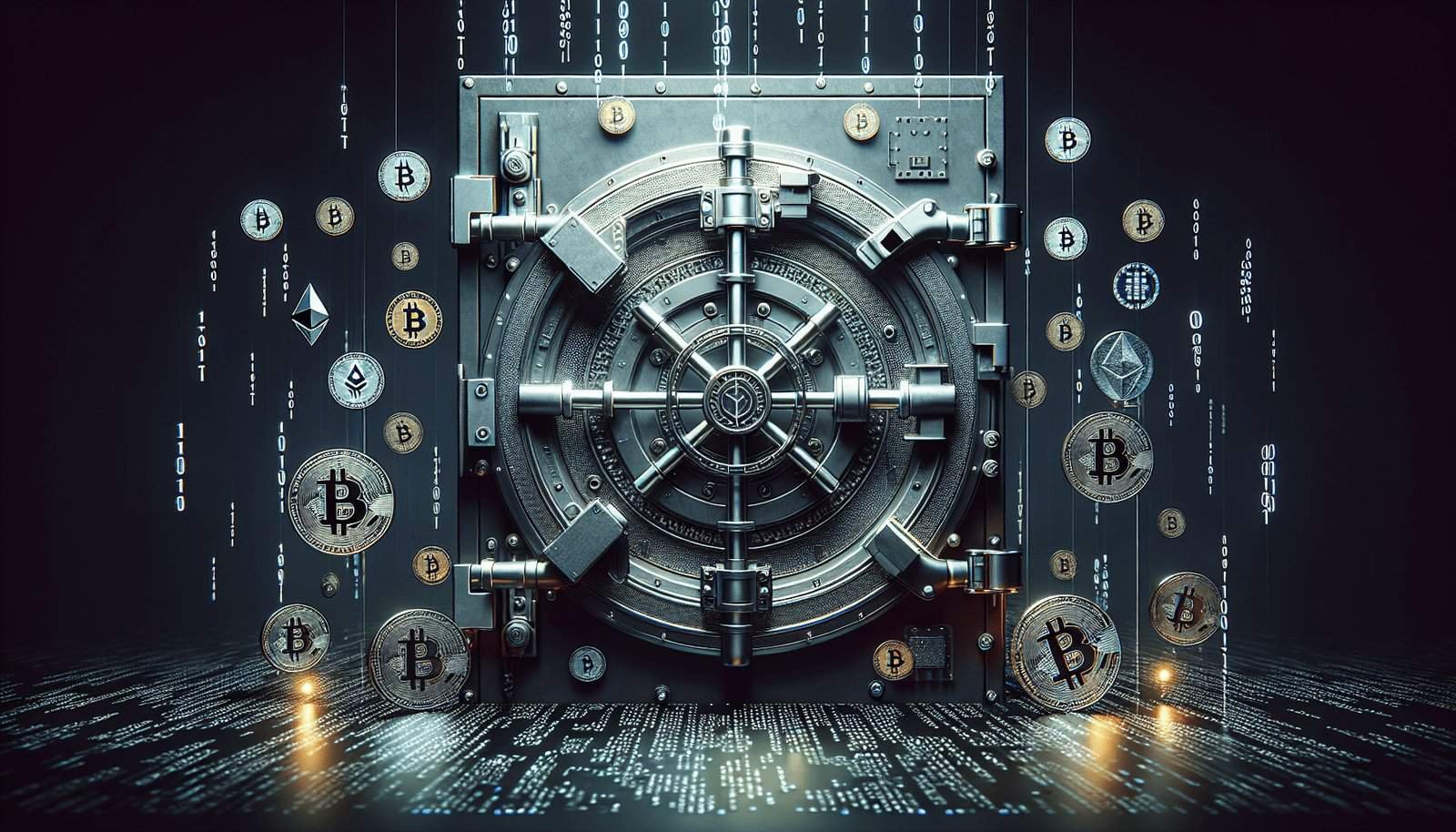Have you ever wondered how best to protect your valuable cryptocurrency from the perpetual threat of hackers? In this digital age, ensuring the security of your cryptocurrency assets is more crucial than ever. This article aims to guide you through effective strategies to safeguard your investments, empowering you to feel confident in your crypto endeavors.
Understanding the Basics of Cryptocurrency Security
Before delving into security measures, you need to understand the basics of how cryptocurrency works and why it is targeted by hackers. Cryptocurrencies like Bitcoin, Ethereum, and others operate on blockchain technology, which is inherently secure through cryptography. However, human error and insufficient security protocols can still lead to vulnerabilities.
Why Is Cryptocurrency a Target for Hackers?
Cryptocurrency represents significant financial value and anonymity, making it an attractive target for cybercriminals. Unlike traditional money in banks, crypto transactions often don’t have the same level of oversight or fraud protection mechanisms in place. Understanding these motivations can help you anticipate and guard against potential threats.
Common Cryptocurrency Threats
Crypto threats come in various forms, each requiring specific defensive strategies. Here are some to watch out for:
- Phishing Attacks: These are fraudulent attempts to obtain your sensitive information by pretending to be a trustworthy entity.
- Malware: This malicious software can infiltrate your devices to steal passwords and private keys.
- Exchange Vulnerabilities: Cryptocurrency exchanges, where you trade coins, can sometimes be prone to hacks if they lack robust security measures.
Strengthening Personal Security Measures
Now that you’re aware of potential threats, it’s vital to implement personal security measures to shield your assets effectively.
Setting Up Strong Passwords
Using strong, unique passwords for your crypto accounts is a basic but powerful measure. Your passwords should be long, incorporate numbers, symbols, and a mix of uppercase and lowercase letters. Avoid using easily guessed passwords like ‘password123’.
Utilizing Two-Factor Authentication (2FA)
Two-factor authentication adds an extra layer of security by requiring not just a password and username but also something that only the user has on them, i.e., a piece of information only they should know or have immediately to hand.
Regularly Updating Software
Ensure that all your software, including antivirus, browser, and system software, is up to date. Updates often fix security vulnerabilities that hackers exploit.

The Importance of Secure Wallets
Your crypto wallet is your personal bank vault. Choosing the right type of wallet and securing it properly is crucial.
Types of Cryptocurrency Wallets
Understanding the different wallet types can help you choose one that best suits your security needs.
| Wallet Type | Description |
|---|---|
| Hot Wallet | Connected to the internet; convenient but vulnerable. |
| Cold Wallet | Offline storage; more secure from online threats. |
| Hardware Wallet | A physical device for storing private keys; very secure. |
Securing Your Wallet
For maximum protection, use a cold or hardware wallet for storing significant amounts and a hot wallet for everyday transactions. Always back up your wallet and store the recovery phrase in a safe location.
Being Vigilant with Cryptocurrency Exchanges
Exchanging cryptocurrencies can expose you to risks. Here’s how to choose the right platform and secure your transactions.
Choosing Reputable Exchanges
Select exchanges that are well-established with a history of strong security protocols. Check for features like cold storage, insurance policies, and regulatory compliance.
Best Practices for Safe Trading
Never trade on unfamiliar or unauthorized platforms. Always log out after each session and avoid using public Wi-Fi for transactions.

Recognizing and Avoiding Scams
Cryptocurrency scams are rampant, and knowing how to identify them is key to safeguarding your investments.
Common Scam Types
Be wary of these common scam types:
- Ponzi Schemes: Promises of high returns with little risk.
- Impersonation Scams: Fake profiles of public figures promoting crypto investments.
- Fraudulent Initial Coin Offerings (ICOs): Fake ICOs designed to steal investor funds.
Tips to Avoid Scams
Always verify the legitimacy of crypto investment opportunities. Do your research, and don’t fall for offers that seem too good to be true.
The Role of Regulation in Cryptocurrency Security
Government regulations can influence the safety of your crypto transactions. Understanding these can help you navigate the legal landscape more effectively.
How Regulations Affect Security
Regulations often aim to protect investors and bring transparency to the market. While they may seem restrictive, they offer a level of security and recourse not found in unregulated spaces.
Keeping Updated with Regulatory Policies
Stay informed about the latest changes in crypto regulations in your region. This knowledge helps ensure you remain compliant, protecting you from legal issues that could jeopardize your assets.

Learning from Past Incidents
Historic crypto breaches can provide valuable insights into what went wrong and how you can avoid similar pitfalls.
An Overview of Significant Hacks
Studying past hacks like the Mt. Gox exchange breach in 2014 can highlight vulnerabilities that led to significant losses for investors.
Lessons Learned
One key takeaway from past incidents is the importance of maintaining personal control over your crypto keys. Avoid leaving large sums on exchanges and ensure that your chosen platforms prioritize user security.
Exploring Advanced Security Measures
For those who wish to go a step further, advanced security measures can add significant protections to your crypto assets.
The Use of Decentralized Finance (DeFi) Platforms
DeFi platforms offer alternative financial services without the need for traditional banks, utilizing smart contracts. They can be safer, provided they are well-audited and employ robust security practices.
Integrated Security Solutions
Consider using integrated security solutions that offer features like real-time threat detection and response, digital asset monitoring, and encryption codes to add multiple layers of security.

Future of Cryptocurrency Security
Security trends evolve as rapidly as technological advancements occur. Keeping an eye on future trends can help you stay prepared.
Emerging Security Technologies
Developments like quantum computing and AI-based security tools promise new ways to protect crypto assets. Stay informed about these technologies to leverage them for enhanced security.
Conclusion
Keeping your cryptocurrency safe from hackers requires a combination of awareness, vigilance, and the right technology. By understanding the risks and proactively employing robust security measures, you can safeguard your digital wealth. Stay informed, regularly assess your security practices, and don’t hesitate to adapt new strategies that bolster your defenses. Your crypto journey needn’t be daunting; with the right precautions, you can enjoy participating in this groundbreaking financial frontier securely.

